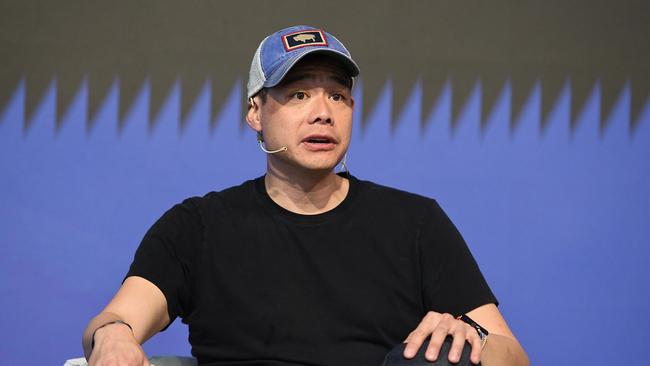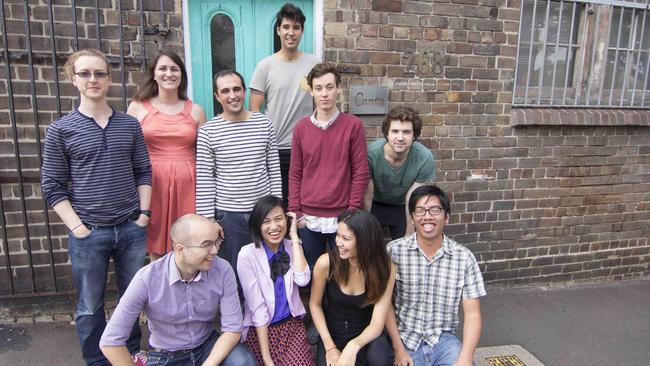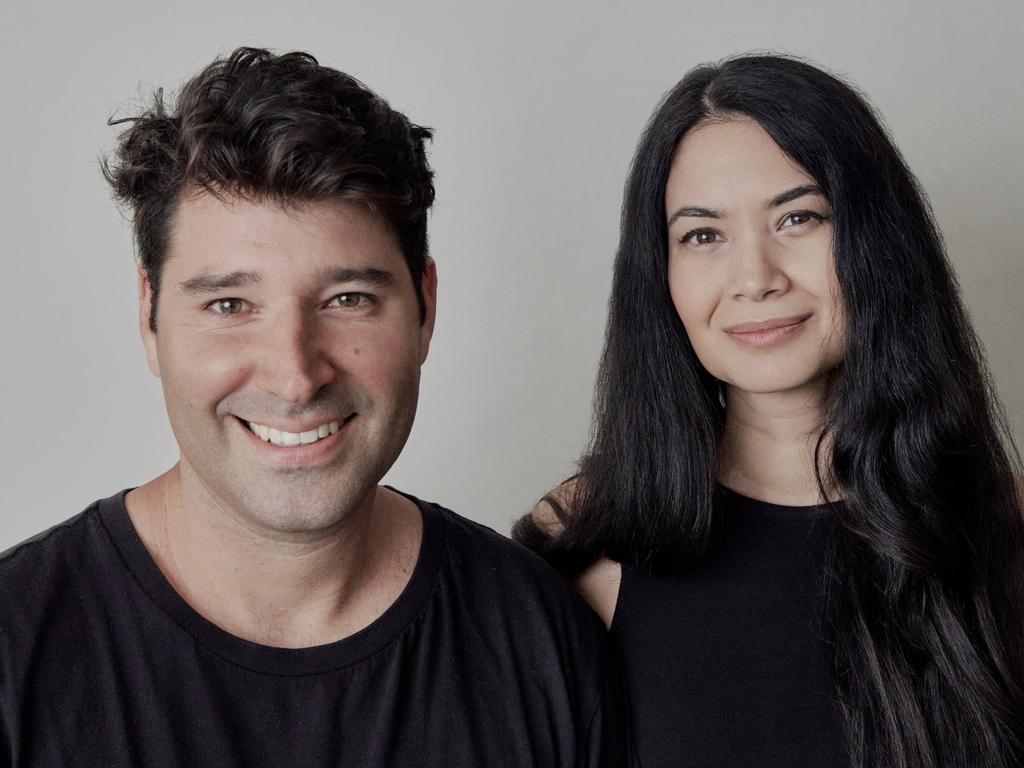‘The next Google’: Early investor’s high hopes for Canva
As Canva turns 10, one of its first investors Wesley Chan calls the decision to write a cheque his ‘career maker’.

Canva board member and early investor Wesley Chan expects the $39bn company to follow a similar growth trajectory to tech giant Google and says he would buy more shares if he could, as its co-founders ready new AI and enterprise features for public release in coming months.
Speaking to The Australian in an interview to commemorate Canva’s 10th birthday Mr Chan, a former top Google executive, called his early Canva investment his ‘career maker’ and said the Australian design software company’s competitive advantage lies in its ability to attract the world’s best engineering talent.
Mr Chan joined other investors including Blackbird in making an early investment into Canva nearly a decade ago after it had received more than 100 rejections across Silicon Valley. It’s now the world’s most widely used online design platform and receives more than 300,000 job applicants a year while other tech firms have been forced into lay-offs.
“I would buy more shares, knowing what I know about Cliff and Mel, and how the business is growing,” Mr Chan said. “People thought that I should sell at the IPO at Google, every financial adviser yelled at me at that point, it was $85 per share, not $15,000 per share.”
Anyone who invested $1000 in Google stock when the company listed in 2004 at $85 per share would now have over $1m. Investors who poured in $1000 into Canva’s first investment round would now have nearly $5m per its latest valuation.
“When you have a company with such founders as Cliff and Mel who have multiple inflection points where the vision is 10 times bigger than it is today, or more than 100 times bigger, who have 100-year plans, those companies tend to grow pretty well,” Mr Chan said.
“There’s still some work to be done in terms of getting the company up to public, but I’d say they have the maturity level to be public. They’re very thoughtful about this. A lot of problems with companies once they become public is they lose the focus on the customer. It becomes about managing quarter to quarter. And I think part of the reason why they don’t want to be public yet is that they want to focus on the long game.
“Google in its S1 wrote ‘don’t expect any guidance from us. We’re not going manage quarter to quarter, and you might see quarters where we dropped because we’re investing in something that might be five to 10 years out and you’ve gotta be okay with that.”
Mr Chan, who is now managing partner at FPV Ventures, said he sees direct parallels between Canva’s co-founders and Google co-founders Larry Page and Sergey Brin.
“Mel and Cliff are probably the two closest founders to Larry and Sergey that I’ve seen.”

Canva investor Blackbird earlier this month sold some of its stake in the company to US investors including Coatue Management and ICONIQ Capital, a move that has been widely seen as a step towards a public listing. Canva co-founder Cliff Obrecht said the company would likely pick the US-based Nasdaq for a public listing, rather than the ASX.
ICONIQ functions as a family office for the likes of Mark Zuckerberg, Sheryl Sandberg and Jack Dorsey, while Coatue Management is the hedge fund led by famed ‘Tiger Cub’ portfolio manager Philippe Laffont. Coatue and ICONIQ were joined by other US-based venture capital firms who declined to be named publicly.
“These investors are big crossover and public market investors. And so having these investors invest in us as a private company, and then essentially will continue to double down on investing in the company through an IPO and beyond,” Mr Obrecht told The Australian this month.
“We’re certainly at the scale where we could IPO.
“We have a bunch of big bets we’re still working on that we want to see come to fruition over the coming years before we go public, because we want those things to be proven repeatable and predictable, and that’s kind of what public markets are looking for.
“But as we grow the pressure builds and we’re not adverse to being a public company, but we’ll do it when the timing is right.”

Canva this month turned 10 and is later this year expected to add more AI functionality to its online design software.
“One area we’re really excited about other than AI is just opportunity in the enterprise,” Mr Obrecht said. “We have very deep and broad penetration into every large organisation in the world, and there’s a lot of rabid fans in every organisation. But where what we haven’t done well is really appeal to the IT decision maker, and actually building out the enterprise grade features that sit on top of an amazing product to achieve your visual communication goals.

“We’re excited about what the enterprise opportunity can bring.”
The company’s $US25.5bn valuation it locked in this month is down 36.25 per cent from a peak of $US40bn in September 2021 but Mr Obrecht described the valuation as “solid” compared to other software companies, many of whom have been forced into mass lay-offs due to the deepening tech downturn.
Mr Chan said that tech companies like Google can drop by as much as 60 per cent in one day, and that turbulence an inherent part of high-growth technology businesses.
“Market valuations come and go, the question is whether some fundamental element of Canva’s business has changed, either for the better or for the worse. And over the last year or so the Canva’s fundamental business prospects have increased drastically, with the launch of ‘magic AI’, with some of the international translations and the new features that they built … The company keeps growing at a crazy fast clip.
“When Google dropped, it wasn’t that Larry got hit by a bus, and Sergei wasn’t committing any crimes, it’s just that the market was melting down. And we saw some of that thing here, valuations have dropped and everyone took a hit. It’s important to remember there’s nothing fundamentally bad about the business, in fact they’ve improved so much.”







To join the conversation, please log in. Don't have an account? Register
Join the conversation, you are commenting as Logout